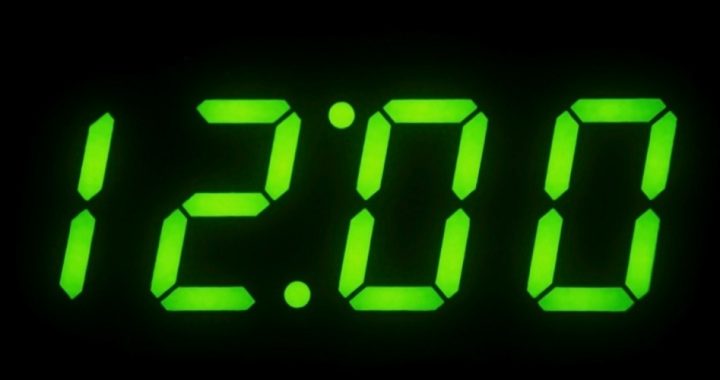
Visitors to the Export-Import Bank’s website on Wednesday would have found a terse notice that its charter had “lapsed” effective midnight, June 30, meaning that “the Bank and any of its delegated authority lenders cannot authorize any new transactions.” However, the bank is likely to have a very long life even after its death: “We will process and close all previously approved transactions [and] will continue to manage all transactions in its portfolio until maturity.”
The bank, created by executive order by then-president Franklin Roosevelt in 1934, was initially enabled to loan money to the Soviet Union, whose own credit rating precluded it from borrowing in the international markets. With this lifeline, the Soviet Union gained respectability and credibility, and international lines of credit opened to the communist country.
In 1945, Congress made the bank an independent agency of the executive branch, and it has been making loans to dead-beat and lower quality credit risks ever since, totaling some $500 billion over that period.
Like flies to honey, crony capitalists seeking to maximize their market share versus their competitors, saw their opportunity to use the bank and its taxpayer guarantees to their advantage. By using those guarantees to help finance the purchase of their products by companies in countries around the globe, it offloaded the risk of default onto those taxpayers while keeping their own balance sheets clean and tidy and available for other more trustworthy customers.
Sold as a tool to expand small businesses seeking to grow overseas but lacking the capital to do so, or unwilling to take on the risk, or unable to find private banks to do so, the Ex-Im Bank has morphed into a funnel of corporate welfare to the largest companies, including General Electric, Caterpillar, Boeing, Bechtel, Exxon Mobil, Applied Materials, and Westinghouse. In fact, between 2007 and 2013 the Ex-Im bank subsidized some $100 billion in sales for these companies, with Boeing getting the lion’s share at $66.7 billion.
Claims by the bank that it runs entirely on the fees it generates in offering corporate giants its taxpayer-guaranteed imprimatur have been proven false. Economists Jason Delisle and Christopher Papagianis called the Bank’s so-called profits “almost surely an illusion” because the “government’s official accounting rules effectively force budget analysts to understate the [real] cost of loan programs,” especially by not accounting for market or default risk.
The bank also claims that by making loans that private banks wouldn’t touch, it is creating jobs that wouldn’t otherwise exist. This also is false, according to economists Haywood Fleisig and Catharine Hill. When resources are channeled offshore, they reduce “domestic investment [and] consumption.” While those subsidies increase employment in export firms, they do so “at the expense of employment elsewhere.”
JayEtta Hecker, when she worked for the Government Accounting Office, testified before the Senate, saying that “government export finance assistance programs … shift production among sectors within the economy rather than raise the overall level of employment in the economy. Hence, the jobs figures that the Ex-Im Bank reports may not represent net job gains.”
Before Obama took office, he also saw that the bank was merely a federal funnel of guarantees that granted special privilege to corporate interests: “I am not a Democrat who believes that we can or should defend every government program just because it’s there. There are some that don’t work like we had hoped, like … the Export-Import Bank that has become little more than a fund for corporate welfare.”
Once in office, Obama found it expedient to change his mind as his relationship with Jeffrey Immelt, head of General Electric, solidified (Obama named Immelt to his Economic Recovery Advisory Board). In commenting on the battle over renewing the bank’s charter last August, Obama said, “Past Congresses have done this 16 times, always with support from both parties. Republican and Democrat presidents have supported the bank, too. This time around shouldn’t be any different. Because the bank works. It’s independent. It pays for itself.”
The key flaw with the Ex-Im Bank has do to with rewarding crony capitalists with access to cheap capital, putting their competitors at a significant disadvantage. With lower financing costs and protection of their own balance sheets from defaults, they are able to outbid their competitors. Veronique de Rugy, senior research fellow at Mercatus Center, explained how: “Capital market distortions have ripple effects. Subsidized projects attract more private capital while other worthy projects are overlooked. The subsidized get richer while the unsubsidized get poorer — or go out of business.”
Members of both parties under the influence of such capitalists as Immelt will no doubt be itching to bring renewal of the bank’s charter to the floors of Congress for a vote next week. But even hard-left Senator Dick Durbin (D-Ill.) is doubtful it can be resurrected: “Once [the bank] closes shop, I think it becomes increasingly difficult to revive it.”
A graduate of an Ivy League school and a former investment advisor, Bob is a regular contributor to The New American magazine and blogs frequently at www.LightFromTheRight.com, primarily on economics and politics.



